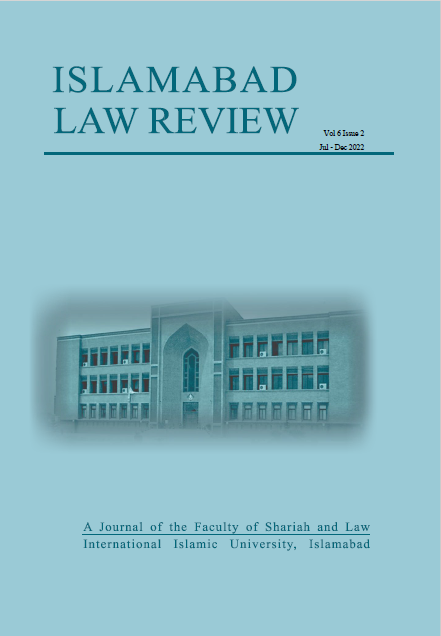Comparison of Family Laws of Pakistan and Code of Hammurabi: A Legal Analysis with Reference to Existing Statutes and Case Laws
Abstract
The institution of family is considered a basic and essential building block in any society. It bears huge significance as it is the foundation of civilization and social relationships. Laws govern such relationships and provide security and protection to this institution. In the same vein, Hammurabi, the King of Babylon circa 1792-1750 BCE, codified many laws concerning marriage, divorce, slavery, commerce, and punishment for various crimes under the code of Hammurabi. It retains the primitive features of ancient Mesopotamia. This article is limited to the discussion of family laws. The article attempts to deliberate on both legislations with a special focus on comparative analyses of both legal regimes. When discussing family laws, the article refers to both judicial rulings and the compendium of family laws of Pakistan. An analysis of the code of Hammurabi, family laws in Pakistan, and precedents of superior courts is carried out. The comparative study of both legal regimes reveals that their family laws share many similarities in respect of the contract of marriage, dower, and dissolution of marriage. Similarly, the laws of maintenance are also discussed in detail. The analytical study reveals that both schemes have certain differences in other respects too.


